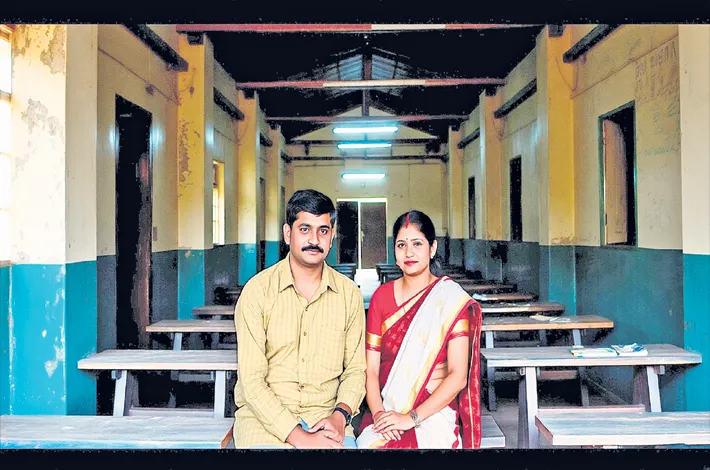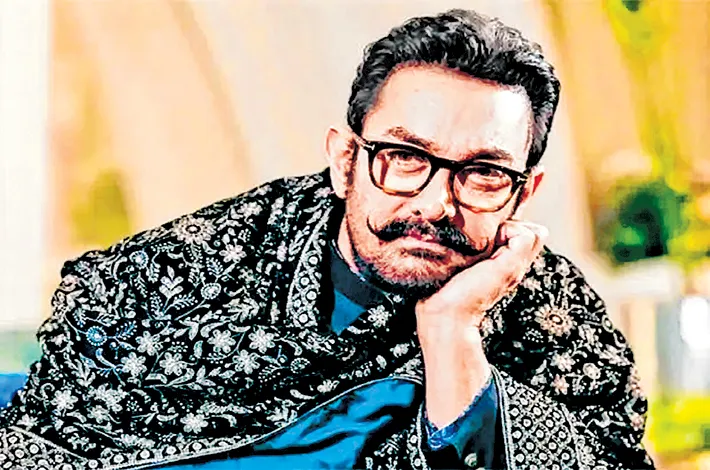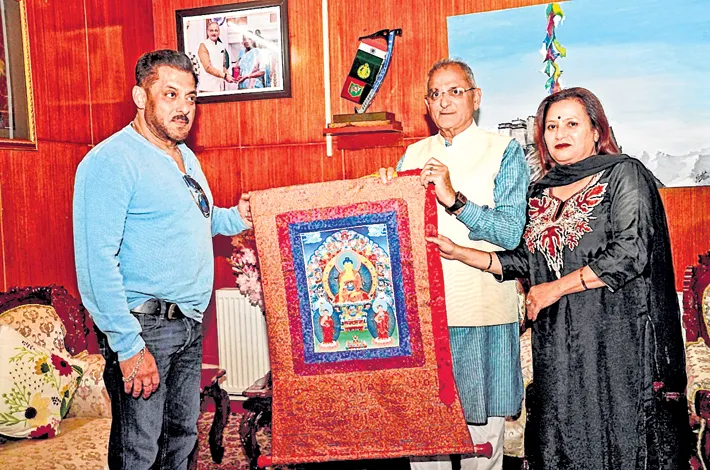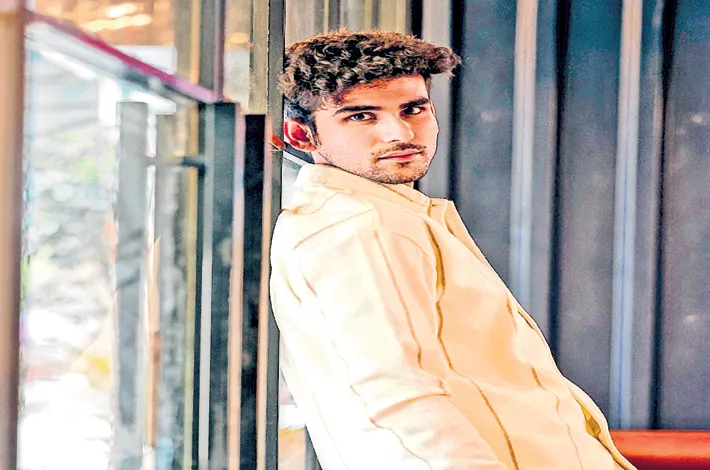Love in Cocoanada
06-09-2025 12:00:00 AM

In the sultry coastal town of Kakinada, Andhra Pradesh, circa 1965, the Government Arts College stood as a modest beacon of learning. Its walls, weathered by monsoon rains and time, housed dreams too big for its crumbling infrastructure. Among the creaking wooden benches and flickering tube lights, two young teachers, Venkatesh and Lakshmi, found their lives entwined in a quiet romance that would defy the odds.
Venkatesh, a lanky mathematics lecturer with a penchant for poetry, had joined the college two years ago. His sharp mind and gentle demeanor made him a favorite among students, though his threadbare shirts betrayed his modest means. Lakshmi, the new English literature teacher, carried herself with a quiet grace. Her eyes sparkled with ambition, and her voice, soft yet firm, could bring Shakespeare to life even in a classroom with peeling paint and broken windows.
Their first meeting was unremarkable—a fleeting introduction in the staff room over tepid tea served in chipped cups. But as days turned to weeks, shared moments began to weave their bond. They lingered after classes, discussing Tagore’s poetry or debating the merits of calculus over literature. The college’s dilapidated library, with its dusty tomes and creaky fans, became their sanctuary. There, amidst the musty scent of old books, Venkatesh would read aloud his poems, and Lakshmi would critique them with a smile that made his heart race.
Kakinada in the 1960s was no place for dreamers. The college lacked basic amenities—leaky roofs during monsoons, erratic electricity, and a chronic shortage of chalk. Yet, Venkatesh and Lakshmi saw beyond the decay. They shared a burning ambition: to become Indian Administrative Service (IAS) officers, a dream that seemed as distant as the stars. The Civil Services Examination was a formidable challenge, and for two teachers from a small-town government college, the odds were stacked high. Books were scarce, coaching centers nonexistent, and their salaries barely covered necessities.
Despite the obstacles, they resolved to prepare together. After classes, they would meet in a corner of the library, pooling their meager savings to buy second-hand UPSC guides from Vijayawada’s book markets. Lakshmi’s meticulous notes on history and geography complemented Venkatesh’s knack for solving complex problems. They studied by kerosene lamps when power failed, their faces illuminated by determination and the soft glow of shared dreams.
Their romance blossomed quietly. Venkatesh would slip handwritten poems into Lakshmi’s books, each verse a confession of his growing love. Lakshmi, reserved yet bold, reciprocated with notes tucked into his lecture pads, quoting Keats or Shelley to express what her words couldn’t. Their colleagues, bound by the conservatism of the era, raised eyebrows at their closeness, but Venkatesh and Lakshmi cared little. Their love was a private rebellion against the constraints of their world.
The road to the IAS was fraught with challenges. The college’s administration, mired in bureaucracy, offered little support. Venkatesh’s father, a retired clerk, urged him to settle for a stable teaching job. Lakshmi’s family, traditional and skeptical, questioned her ambitions, pressing her to marry instead. Yet, they leaned on each other. When Lakshmi faltered during mock interviews, Venkatesh bolstered her confidence with gentle encouragement. When Venkatesh doubted his ability to crack the exam, Lakshmi reminded him of his brilliance with a quiet fierceness.
In 1967, they sat for the UPSC exam in a sweltering examination hall in Hyderabad. The journey there had been grueling—a crowded train ride, shared meals of cold rice, and sleepless nights revising under dim streetlights. Months later, when the results were announced, Venkatesh and Lakshmi sat together in the college courtyard, hearts pounding. Both had cleared the written exam. The interview phase loomed, but their shared dream felt closer than ever.
The interviews in Delhi tested their mettle. Venkatesh, nervous yet articulate, impressed the panel with his clarity on rural development. Lakshmi, poised despite her simple cotton saree, spoke passionately about education reform. Back in Kakinada, they awaited the final results, their hands clasped under the banyan tree where they’d shared countless dreams. When the telegram arrived, confirming their selection, tears mingled with laughter. They had done it—two teachers from a forgotten college in Kakinada were now IAS officers.
Their love, tested by hardship, only grew stronger. In 1968, they married in a simple ceremony at a local temple, surrounded by students and colleagues who’d witnessed their journey. The college, once a symbol of their struggles, now stood as a testament to their triumph. Venkatesh was posted to a district in Andhra Pradesh, while Lakshmi joined the education department in Delhi. Distance never dimmed their bond. Letters filled with poetry and promises kept their love alive, each word a reminder of the nights spent studying by kerosene lamps.
Years later, as senior IAS officers, they returned to Kakinada for a college reunion. The infrastructure had improved—new buildings, better labs—but the spirit of resilience remained. Venkatesh and Lakshmi, now greying but still holding hands, shared their story with wide-eyed students. They spoke of love that endured, of dreams that defied crumbling walls, and of a belief that even the smallest places could birth the grandest futures.
Their story became legend in Kakinada, a reminder that love and ambition, when intertwined, could conquer any obstacle. The old library, now renovated, held a corner dedicated to them—a shelf of their favorite books, a photograph of their wedding day, and a plaque that read: “For Venkatesh and Lakshmi, who taught us that chalk and dreams can change the world.”








